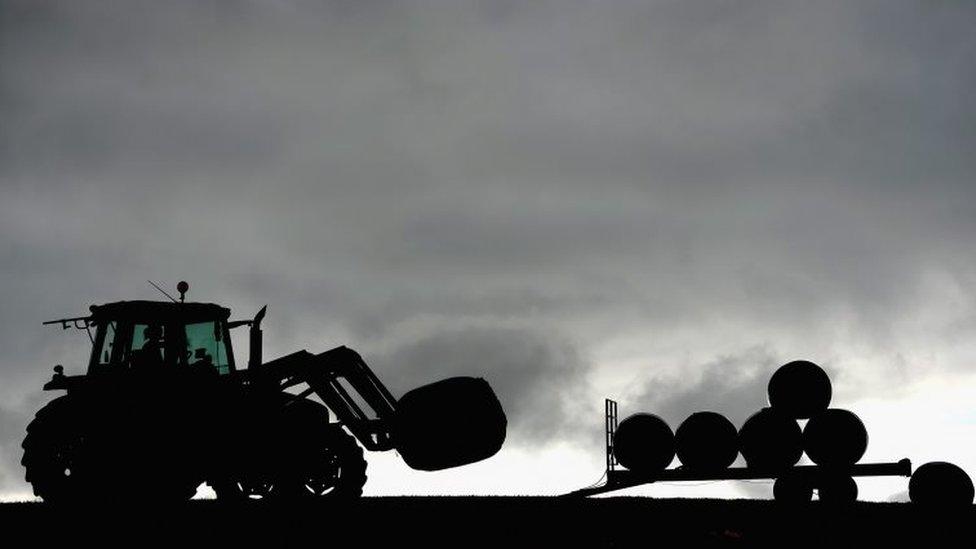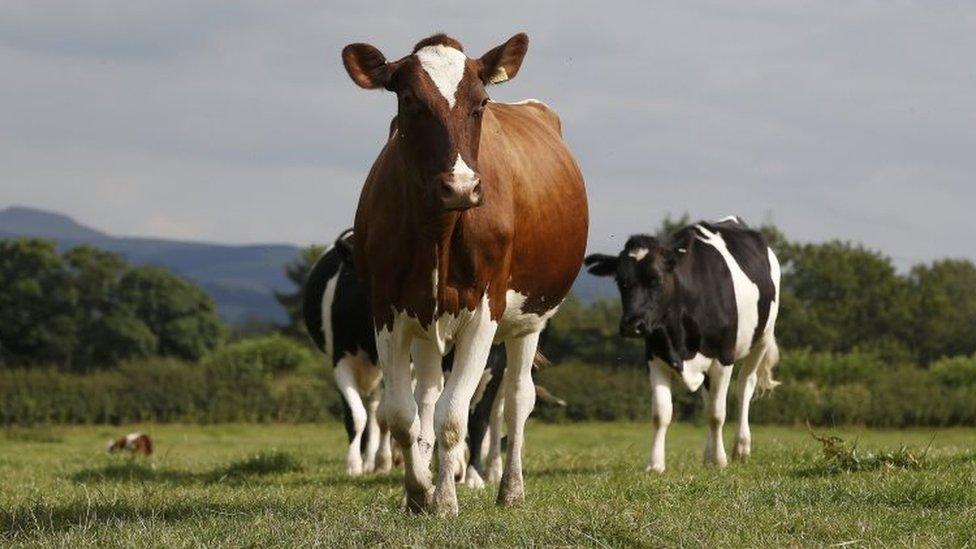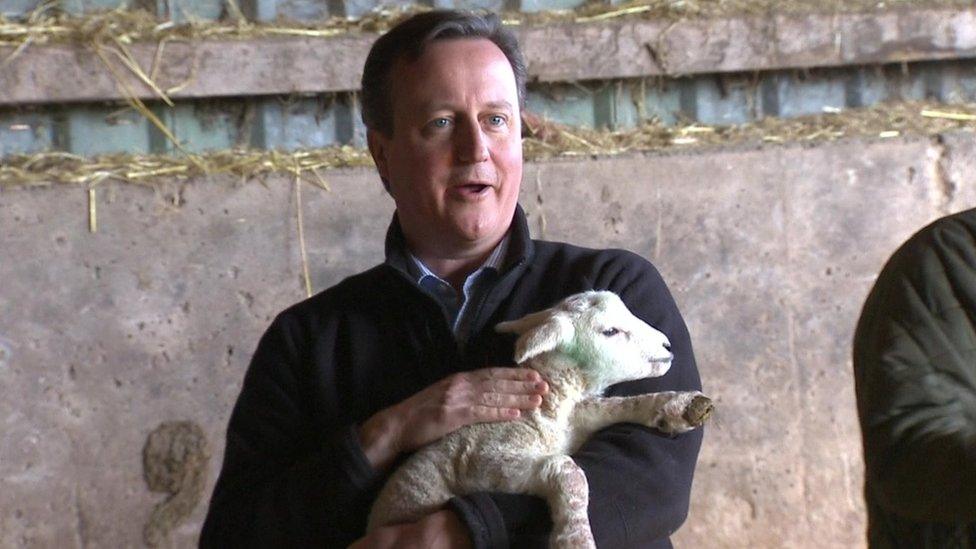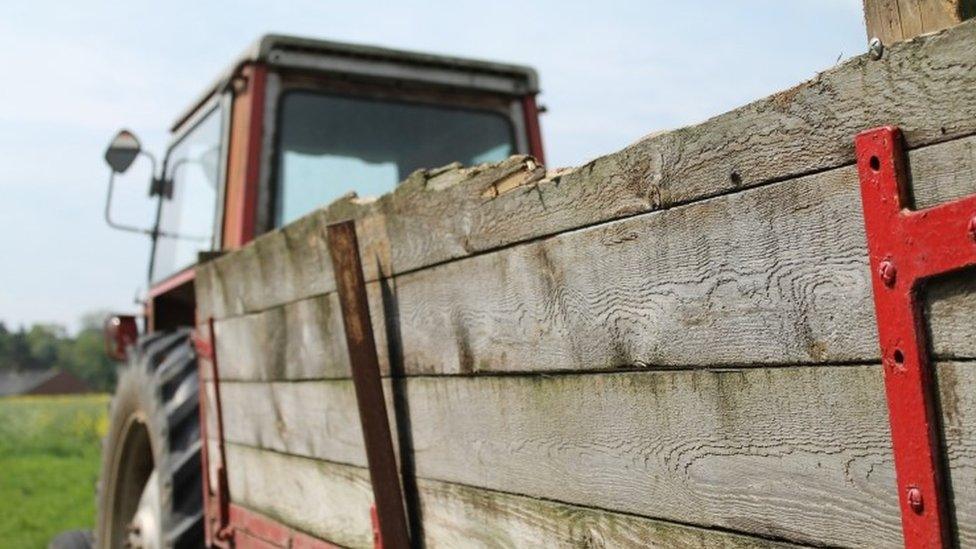EU referendum: Row over impact of exit on farming and food prices
- Published

The government's farming minister has claimed leaving the European Union would allow Britain to "take control" and cut red tape for food producers.
George Eustice, who is backing the Vote Leave campaign, said some farmers would welcome the end of subsidies and prefer different kinds of help.
It follows a National Farmers Union report, external that warned exit could push up food prices and hit farm incomes.
Farming is set to be a key battleground in the run-up to 23 June's referendum.
Much will depend on what the government would do about subsidies currently paid through the EU's Common Agricultural Policy (CAP), which is worth about £2.4bn a year to British farmers.
'Serious risks'
Supporters of the UK leaving the EU, such as Mr Eustice, argue that the British government would continue to provide direct support for its farmers.
The NFU report sets out three scenarios for what could happen to British farms if it left the EU - in two of them food prices increase, boosting farming incomes but reducing consumption of products as they become more expensive.
In the third, farm gate prices fall, benefiting consumers through lower prices but hitting farmers' incomes in many sectors.

The first two scenarios are based on the UK striking a trade agreement with the EU or through the World Trade organisation.
The third, based on a more liberalised trade policy, has significant negative impacts on farm-gate prices, particularly meat and some dairy, according to the report by Dutch university Wageningen said.
NFU director general Martin Haworth said: "Some of the scenarios appear to suggest that there could be serious risks to farm income from leaving the EU, while the results of others suggest there could be a more favourable outcome.
"It comes down to a matter of judgment as to which of the scenarios appears the most likely. This in turn will depend on the policy position adopted by the UK government."
'Regulatory burdens'
Former NFU president Sir Peter Kendall warned the report highlighted the most likely outcome for British agriculture, which he said made for "depressing reading, with many farms facing a severe loss of income".
Labour's shadow farming minister Nick Smith said: "Our farmers deserve every opportunity to thrive and I believe they have the strongest and safest chance to do so by staying in."
But Mr Eustice, a former strawberry farmer who stood for UKIP before joining the Conservatives, said British farms would still be supported "to the same level, possibly even more than now" if Britain left the EU.
He told BBC Radio 4's Today programme it would be possible to "get rid of the very complex bureaucratic system of cross compliance regulations that we have now, lots of pointless administration would go, we would reduce the regulatory burdens on farmers".
On subsidies, he added: "We would still support farming to the same level, possibly even more than now, some of those countries that are outside the EU support their farmers to a greater extent financially, but we might support farming differently."
Mr Eustice argued farmers he had met did not like just being given a subsidy every year, adding if support could be given to help them earn their profit from the market "they would be happier with that".
He added that food prices were governed by changes in energy prices, by weather, global changes in supply and demand, plus exchange rates. These were global phenomena, he said, adding "they won't be affected by whether or not we are in or out of the EU".
- Published11 March 2016

- Published7 January 2016

- Published23 March 2016
